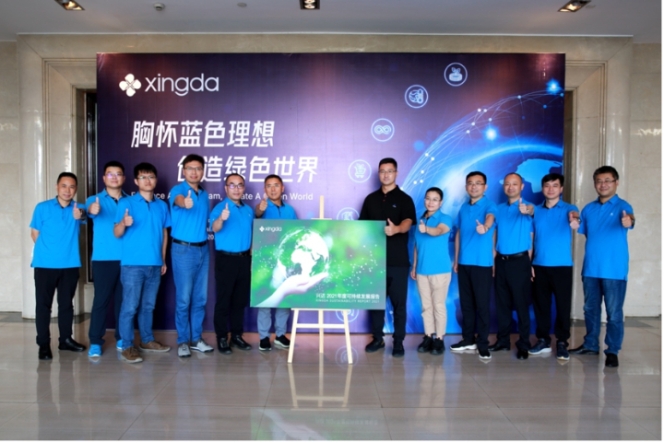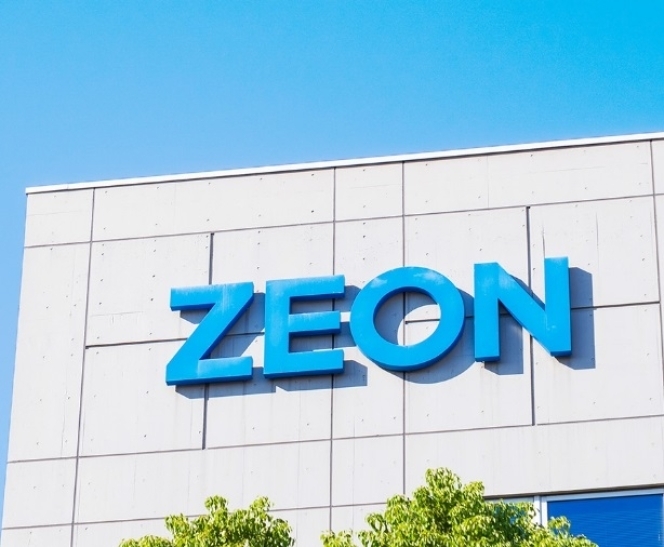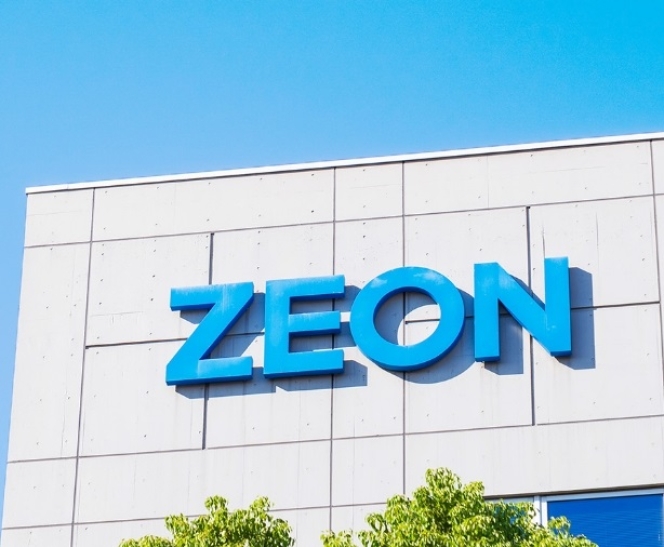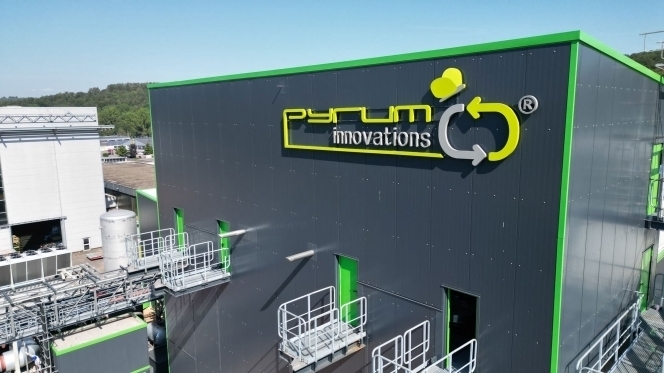
Xingda has become the first Chinese steel cord and bead wire maker to release a sustainability report.
The sustainability report 2021 details the goals, plans, actions and latest progress of its key sustainability initiatives, such as green products, circular economy and low-carbon operation, with key information.
With "Sustainable and High-quality Development" as the core and responsible operation as the foundation, Xingda will deliver high-quality, innovative and green products and solutions, promote green transformation of the industry, and contribute to the social development and community prosperity.
Four major areas of sustainable development:
Green products and solutions
Sustainable supply chain
Shared social values
Robust operation model
Seven substantive topics and progress of sustainable development:
1. Green products
By 2025, increase the proportion of green products in total sales to 30%
Progress in 2021: ST/UT tyre cord products accounted for 28% of total sales. The ST/UT tyre cords can reduce tyre weight, lower rolling resistance, and prolong tyre service life.
2. Tackling climate change
By 2025, reduce carbon emission per unit of product by 18% in comparison to 2020
By 2025, reduce energy consumption per unit of product by 14% in comparison to 2020
By 2025, achieve a 30% green energy ratio
Progress in 2021:
a) Carbon emission per unit of product of Jiangsu base was 1.42 tons of CO2e, down 3.73% year- on-year
b) Energy consumption per unit of product was 1.43 MWH/ton , down 1.38% year on year Meanwhile, energy consumption per unit of product of the Jiangsu base in 2021 dropped by 2.69% from 2020
c) Approved the CAPEX of 7.6MW rooftop solar power station, with an expected annual electricity generation up to 8 million kWh
3. Circular economy
By 2030, raise the proportion of recycled steel to 40%
Progress in 2021: The purchased steel wire rod contained 18.50% recycled steel
4. Responsible procurement
By 2025, include 100% of Xingda’s suppliers in sustainability assessment
Progress in 2021: 11.48% of suppliers finished environmental and social evaluation, while the evaluation ratio of major raw material and auxiliary product suppliers was 90.9%
5. Community and human capital development
By 2025, provide on average 40 hours of vocational training for each employee per year
Progress in 2021: Employees received 34 hours of training on average
6. Compliance and business ethics
By 2025, provide business ethics trainings for 100% of our employees and suppliers
Progress in 2021: 857 employees (11% in total) received anti-corruption training
7. Sustainability governance
Continuously improve information transparency and capital market performance
Progress in 2021:
a) Xingda established Sustainable and High-Quality Development Strategy Committee and the Xingda International Green Vanguard Team
b) Released Xingda's first sustainability report
c) Achieved score B for CDP Climate Change Questionnaire rating and won Bronze Medal for Ecovadis rating
Along with the report, Xingda also shared the current status of its pioneering ‘from tyre, back to tyre’ project, in which steel cord and bead wire shall be recycled from used tyres to make wire rod and then new steel cord and bead wire, so as to achieve a true circular economy. At present, Xingda is working closely with tyre recyclers, steel makers and tyre makers to assess the technical feasibility of such cycle, and look to conclude the assessment in the coming months before moving to the mass trial phase. Once completed, it will mark one of the greatest breakthroughs the industry has seen in recent years and offer a remarkable boost to the quest for circular economy by tyre makers around the globe.
Zeon And Visolis Sign Binding Term Sheet To Advance Bio-Isoprene And SAF Commercialisation
- By TT News
- February 16, 2026

Zeon Corporation and Visolis Inc. have formalised their partnership by signing a binding term sheet, marking a pivotal advancement in the commercialisation of bio-based isoprene monomer and sustainable aviation fuel (SAF).
This collaboration, which now moves from technology verification towards project implementation, is built upon the progress made since their initial memorandum of understanding in March 2024 and the subsequent joint feasibility study announced in April 2025. Bio-based isoprene monomer serves as an essential component in the production of synthetic rubbers and various other materials, while SAF is increasingly recognised as a critical next-generation fuel for reducing carbon emissions within the aviation industry.
The newly established term sheet outlines a foundational agreement on the key elements required for a final investment decision. These include defining the business structure and the respective roles of each company, establishing technology and development strategies and advancing detailed engineering for the proposed production facility. Furthermore, the agreement covers the evaluation of potential sites, the process for engaging with suppliers, securing necessary regulatory approvals and planning the financing pathway.
The envisioned facility is set to commence commercial-scale output after successfully demonstrating mass production capabilities for biomass-based isoprene and SAF, utilising Visolis’ proprietary technology. Both companies are now committed to expediting the path to full-scale production and ensuring a steady supply of these sustainable products to the global market.
Zeon Backs Chemify To Accelerate Digital Chemistry Innovation
- By TT News
- February 12, 2026

Zeon Corporation has deepened its commitment to digital chemistry through a strategic investment and partnership with Chemify Limited, secured via its corporate venture arm Zeon Ventures Inc. Chemify, a growth-stage UK enterprise, is reshaping molecular research by integrating digital tools with automated laboratory systems. Its proprietary Chemputation technology translates molecular targets into executable chemical code, which operates directly on robotic platforms to complete integrated Design–Make–Test–Analyze cycles without manual intervention. This closed-loop automation allows Chemify to explore previously inaccessible areas of chemical space while reducing the timeline from concept to synthesized compound by up to tenfold.
A cornerstone of Chemify’s capability is its recently inaugurated Chemifarm in Glasgow – one of the most sophisticated automated facilities in the world for molecular design and construction. The facility enables accelerated iteration and autonomous synthesis of novel small molecules, converting chemical code into tangible compounds with unprecedented efficiency. These advances are critical for developing functional, synthesisable molecules that can contribute solutions to urgent global issues spanning public health, energy efficiency and environmental protection.
Zeon has been at the forefront of adopting digital methodologies in chemical R&D, recognising their transformative potential from an early stage. This investment is positioned to strengthen Zeon’s internal digital chemistry efforts and catalyse the invention of novel materials capable of addressing complex societal needs. The move aligns with Zeon’s STAGE30 corporate strategy, which targets a rise in revenue contribution from four key growth sectors – Mobility, Healthcare and Life Sciences, Telecommunications and Green Transformation – to 48 percent by fiscal 2028. By backing pioneering enterprises and cultivating advanced materials, Zeon continues to advance its dual vision of a sustainable planet and a secure, progressive society.
- Rubber Board Of India
- Rubber Producers’ Societies
- Sulphur Dusting
- Powdery Mildew
- Rubber Plantations
- Rubber Board Subsidy
Rubber Board Announces Sulphur Dusting Subsidy For Rubber Producers
- By TT News
- February 09, 2026

The Rubber Board of India has announced the opening of an application window for financial aid for sulphur dusting to combat powdery mildew disease in rubber plantations for the year 2026. The scheme is open to all Rubber Producers’ Societies (RPS) operating in both traditional and non-traditional growing regions.
From 10 to 20 February 2026, eligible societies must submit their applications online through the 'ServicePlus' portal on the official Rubber Board website. Societies requiring help with the submission process are advised to contact their nearest Rubber Board regional office or field station, or to consult the board's website for further guidance.
French Recognition Of TPO Bolsters Pyrum's Circular Economy Model
- By TT News
- February 09, 2026

Pyrum Innovations AG has welcomed the official recognition by French authorities on 17 January 2026, which classifies tyre pyrolysis oil (TPO) as a legitimate raw material for the chemical sector. This pivotal regulatory milestone for pyrolysis oil derived from end-of-life tyres substantially enhances the product’s integration into established chemical value chains. It also provides greater predictability for future purchase and partnership frameworks, thereby accelerating the development of industrial material cycles.
For Pyrum, which processes scrap tyres through pyrolysis to recover pyrolysis oil, industrial carbon black and steel, this decision underscores the critical need for standardised and reliable regulatory conditions. Such clarity is fundamental for scaling investments, production volumes and supply chains, particularly as the chemical industry and circular economy converge. The establishment of clear product categories is essential to ramp up the market for high-quality recycled raw materials.
The company remains committed to tracking further developments in France and the wider European dialogue regarding the classification and application of recycled feedstocks. Pyrum’s overarching objective is to expand industrial-scale recycling solutions for scrap tyres. This regulatory progress directly supports the company’s mission to secure long-term, quality-assured supply agreements with partners across the chemical industry, thereby advancing a more sustainable and circular economic model.
Pascal Klein, CEO, Pyrum Innovations AG, said, “The decision in France is an important step for the industrial use of pyrolysis oil from waste tyres. It supports a trend that we are seeing in many markets, where the chemical industry is seeking reliable, technologically robust and clearly classified alternative raw materials.”







Comments (0)
ADD COMMENT